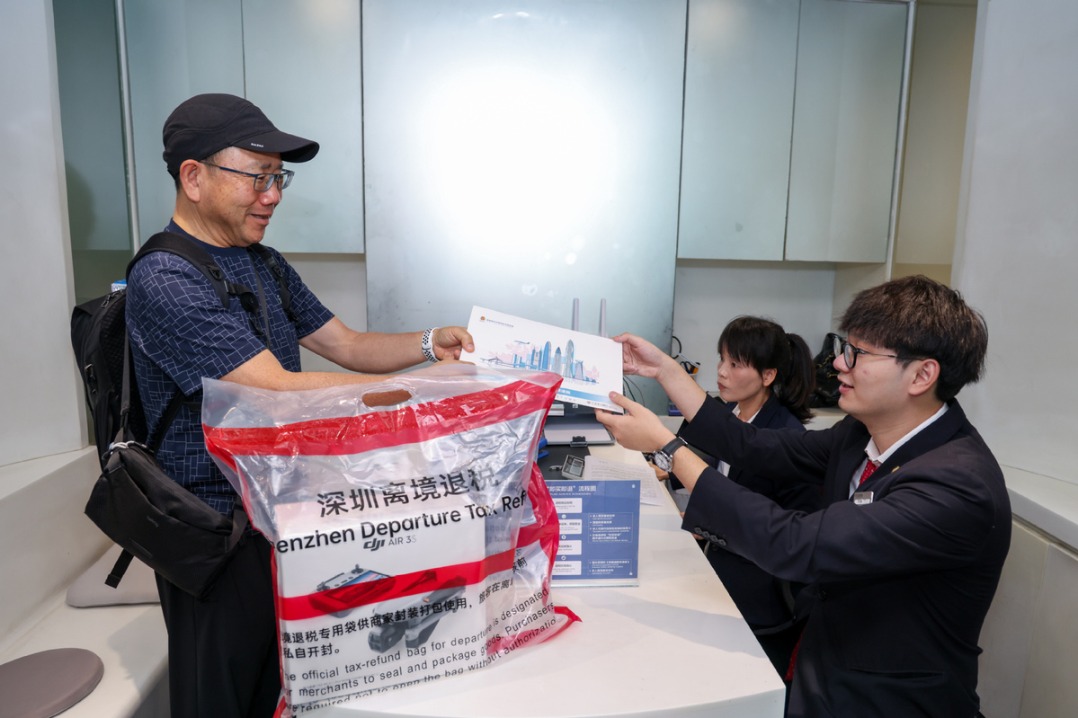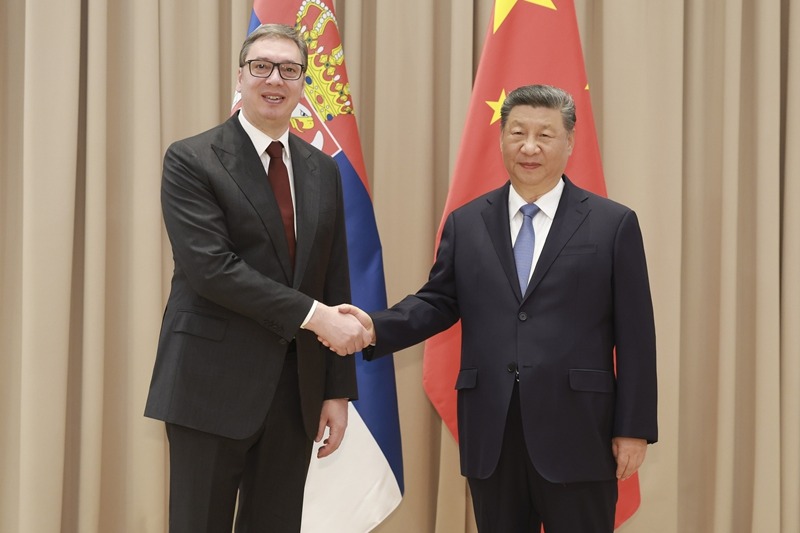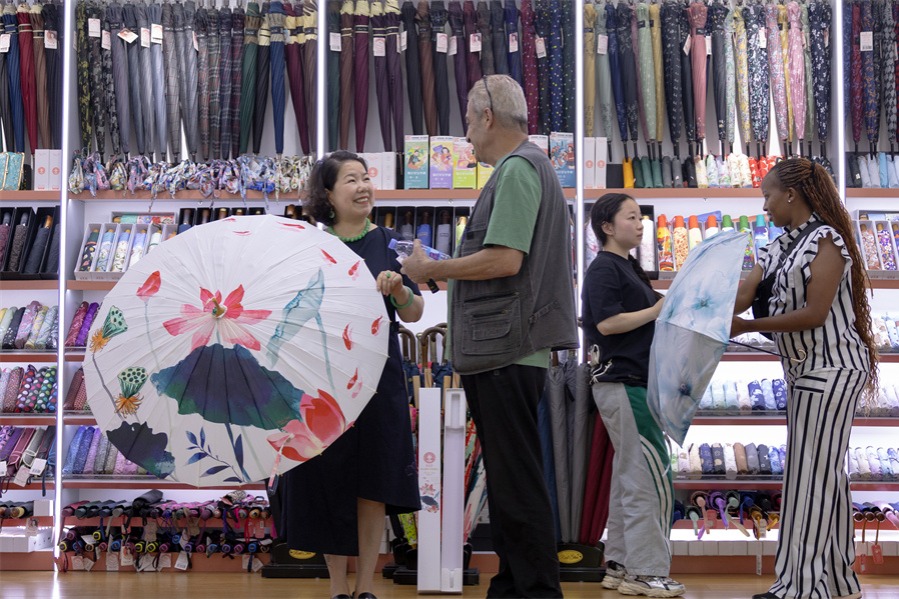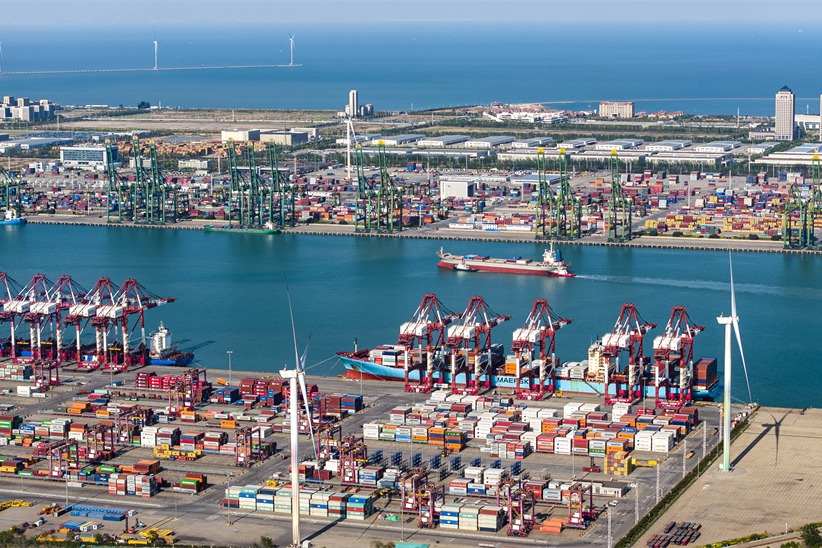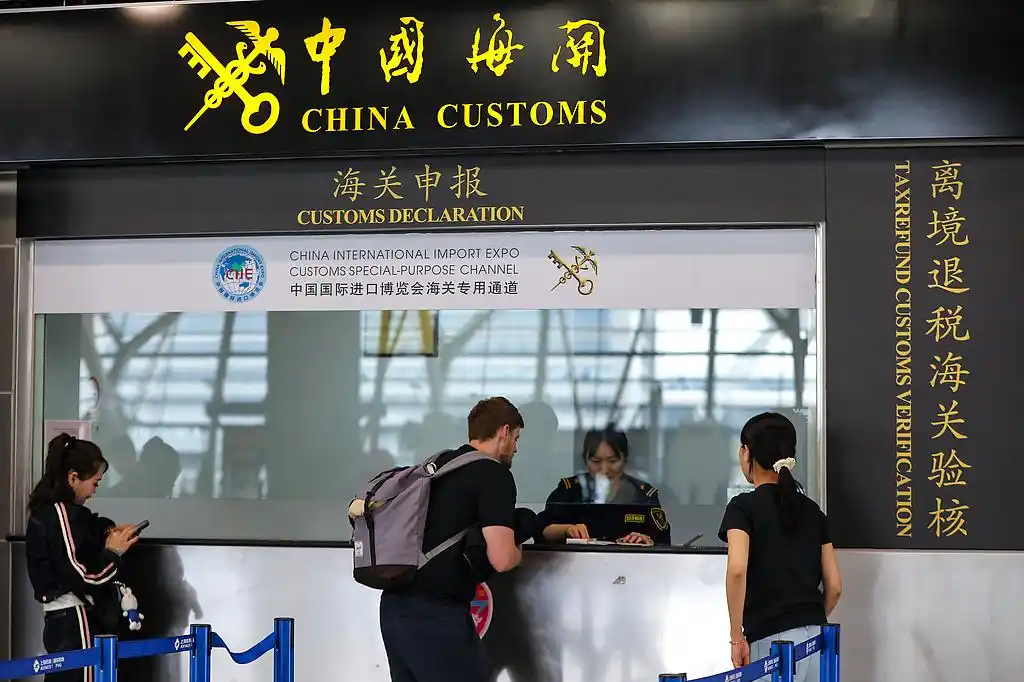China-US agreement to de-escalate trade tensions, hailed as positive move that will stabilize global economy
Talks: Vice-premier calls for safeguarding multilateralism

China and the United States announced a series of tariff adjustment measures on Monday aimed at easing trade tensions between the world's two largest economies, according to a joint statement issued by both governments in Geneva, Switzerland.
Trade analysts and exporters described the move as a positive step for the global economy, providing much-needed stability amid ongoing uncertainty.
The announcement came after a high-level meeting on economic and trade affairs held on Saturday and Sunday in Geneva. The two sides acknowledged the critical role of their bilateral trade relationship in supporting the economies of both countries and the broader global economy.
The US agreed to remove 91 percentage points in the additional tariffs it had imposed on China, while China correspondingly would remove 91 percentage points in its additional tariffs on the US. In addition, the US will place a 90-day pause on 24 percentage points of the rate of additional ad valorem duties — tariffs levied in proportion to the value of goods — on Chinese imports, and China will accordingly place a 90-day pause on 24 percentage points of its modified additional ad valorem rates of duty for imports from the US.
In the joint statement, the two sides commit to taking the actions by Wednesday and say they will establish a mechanism to continue discussions about economic and trade relations.
Frederic Neumann, chief Asia economist at HSBC Global Research, said that investors are breathing a sigh of relief as trade tensions between the US and China are easing. The reduction in tariffs, even if temporary, will offer major relief to exporters both in China and the US, he said.
A spokesperson for China's Ministry of Commerce said that the high-level economic and trade talks between China and the US achieved substantial progress by significantly reducing bilateral tariff levels, which meets the expectations of manufacturers and consumers in both countries and is in line with the interests of both nations and the broader global community.
China hopes that the US will continue to work with China, move in the same direction, fully rectify its erroneous practice of imposing unilateral tariffs, and further strengthen mutually beneficial cooperation, according to the spokesperson.
China saw its trade with the US, its third-largest trading partner, decline 2.1 percent year-on-year to 1.44 trillion yuan ($199.9 billion) in the first four months of 2025, according to the latest data from the General Administration of Customs.
Mei Xinyu, a researcher at the Chinese Academy of International Trade and Economic Cooperation in Beijing, said that for the next step, it is vital for China and the US to work together to further remove the remaining additional tariffs on both sides, as the tariffs continue to impose unnecessary burdens on businesses and consumers, and disrupt global supply chains.
Qi Mingwen, president of Zhejiang Shuoqi Home Textile Products, said that with the latest tariff adjustments, Chinese exporters can now allocate more resources to innovation and market expansion.
The company, based in Ningbo, Zhejiang province, is a major electric blanket manufacturer. It exported 460 million yuan worth of products to the US in 2024, according to data from Ningbo Customs.
"Looking ahead, we will continue to monitor the upcoming China-US economic and tariff talks, respond proactively to potential changes and seize growth opportunities," said Qi.
Ying Pinguang, dean of Shanghai University of International Business and Economics' School of Global Governance, said, "China and its exporters will closely watch US actions in the next phase, particularly whether it delivers on concrete steps regarding key issues such as tariffs and export controls."
During a meeting on Sunday with World Trade Organization Director-General Ngozi Okonjo-Iweala in Geneva, Vice-Premier He Lifeng stressed that all parties should resolve differences and disputes through equal dialogue under the framework of the WTO, jointly safeguard multilateralism and free trade, and promote the stability of global industrial and supply chains.
Chinese stocks closed higher on Monday, with the benchmark Shanghai Composite Index rising 0.82 percent to 3,369.24 points, while the Shenzhen Component Index gained 1.72 percent to close at 10,301.16 points.
Noting that the trade tensions between China and the US has caused a profound impact on the global economic order, Willie Tan, CEO of China, South Korea and Southeast Asia at Skechers, a US-based athleisure company, said the advantages of China-US cooperation significantly outweigh any disadvantages.
Tan said that the group achieved record global sales revenue of $8.97 billion in 2024, with China standing out as its largest overseas market. As a key growth engine, the Chinese market will play a pivotal role in supporting the company's goal of reaching $10 billion in global sales by 2026.
Liu Zhihua contributed to this story.



















